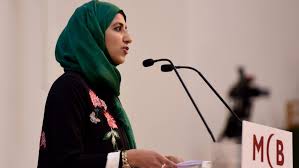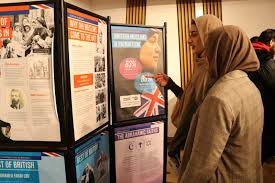The intention of this section of the Digital British Islam archive is to explore British Muslim organisations, which are increasingly visible as social actors. The growth of this sector is partly due to the work of various advocacy agencies that have emerged over a number of decades. Jørgen Nielsen has provided a useful typology of types of organisations that have been developed to meet the needs of Muslims in Europe and act as representatives for their social and political concerns.1 There are groups set up as extensions of organisations or movements from their country of origin. Others were formed by governments or government-related agencies and lastly, national civil society groups that arose from local communities to represent and advocate for specific causes. 2

Some are theological and ideological trends that wanted to establish themselves in the West and have developed mosques and centres. Many are the result of the maturation of communities that organised to represent Muslim concerns to government and wider society, and function as national and local groups. This collection offers a selection of some of the most active advocacy organisations in the current British cyber Islamic landscape which can be explored through the links provided.
Over the last twenty-five years, the most prominent advocacy group has been the Muslim Council of Britain (MCB), which was the first functioning attempt at coordinating national efforts to lobby for the protection from religious discrimination against Muslims within the legal system. The MCB was launched in 1997 and has grown to become a national umbrella body with over 500 affiliated mosques and Islamic organisations. It called for the public recognition of Muslims as distinct faith group and in its early years became the unofficial interlocutor with the Labour government. The MCB has consistently utilised web-based platforms since its inception.3

Today, a new generation of organisations attempt to represent and advocate for British Muslim concerns and include a mix of human rights-based organisations such as the IHRC, Cage and HHUGS. Others campaign against Islamophobia and encourage active citizenship such as MEND, and Tell MAMA, while others such as Prevent Watch, are dedicated to challenging the counter-terrorism strategy of the state. Newer entities such as the Muslim Census and The Riz Test encourage British Muslims to become actively involved with their respective causes and contribute to a vibrant online presence that often has offline activities such as the Maslaha initative. The net effect is an increasing range of digital advocacy organisations and platforms that attempt to mobilise people within communities and represent their concerns to wider society.
1 Jørgen Nielsen, Muslims in Western Europe. Edinburgh University Press, 2004, p.21
2 See for example, Sadek Hamid, Sufis, Salafis and Islamists: The Contested Ground of British Islamic Activism. I.B. Tauris, 2017 and Khadijah Elshayyal, Muslim Identity Politics: Islam, Activism and Equality in Britain, I. B Tauris, 2018.
3 Gary R. Bunt, “From Mosque to YouTube: Muslims in Britain and the internet” chapter in Postcolonial Media Culture, Rinella Cere & Ros Brunt (editors), Palgrave Macmillan, 2011.
